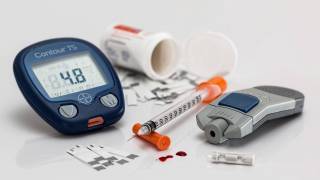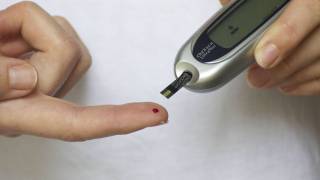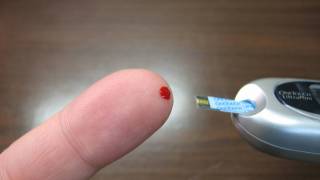HPV Vaccination Did Not Increase Diabetes Risk

A new study reports no increased risk for the development of diabetes mellitus type 1 (DM1) following human papillomavirus (HPV) vaccination.
This retrospective, cohort study published in Vaccine on March 28, 2019, provides additional evidence that during the 10-year time period after the HPV vaccine Gardasil was first introduced, there was no substantial increased risk for DM1 following HPV vaccination.
This analysis identified 2,613 DM1 cases, and 338 remained in the analysis after applying an algorithm, HPV vaccine eligibility and membership criteria.
Over the 10 year study period, comparing vaccinated with unvaccinated persons, the risk of DM1 associated with HPV vaccine receipt was minimal (hazard ratio 1.21, 95% Confidence Interval 0.94, 1.57).
This is important news since the exact cause of DM1 is unknown, says the National Institutes of Health (NIH).
DM1 is a condition in which cells in the pancreas stop producing insulin, causing abnormally high blood sugar levels. This lack of insulin results in the inability of the body to use glucose for energy and control the amount of sugar in the blood.
DM1 can occur at any age but usually develops by early adulthood, most often in adolescence. Having certain "variants" of specific genes may increase a person's risk to develop the condition.
DM1 itself is not inherited, but a predisposition to developing the condition can run in families.
Treatment for DM1 includes blood sugar control and insulin replacement therapy. Improper control can cause recurrence of high blood sugar, or abnormally low blood sugar (hypoglycemia) during exercise or when eating is delayed.
If not treated, the condition can be life-threatening. Over many years, chronic high blood sugar may be associated with a variety of complications that affect many parts of the body.
If you need medical advice regarding diabetes, you can look for healthcare professionals who have experience with this disease.
Previously, in a March 2019 editorial, behavioral scientist Dr. Jasmin Tiro at University of Texas Southwestern Medical Center explored ways to improve communication about the delivery of the HPV vaccine Gardasil 9, which prevents the virus that causes cervical cancer.
HPV is a group of more than 150 related viruses, says the Centers for Disease Control and Prevention (CDC).
“The HPV vaccine is one of the best cancer research discoveries we've had in the last hundred years.”
“We need to better communicate the benefits of the vaccine so that we create a community demand for this great opportunity to prevent cancer,” said Dr. Tiro.
The Gardasil 9 vaccine is available at select clinics and pharmacies in the USA.
Vaccine discounts can be found at this page.
The Vaccines for Children (VFC) program provides vaccines for children ages 18 years and younger, who are uninsured, Medicaid-eligible, American Indian or Alaska Native. Learn more about the VFC program.
Vaccines can cause side effects, which should be reported to your healthcare provider and the CDC.
Our Trust Standards: Medical Advisory Committee
















